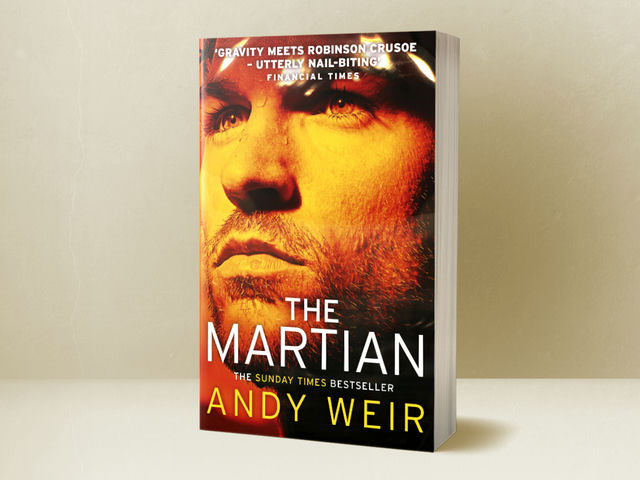The Martian
Andy Weir, 2011

I read The Martian about a year after it had hit mainstream awareness, but before the announcement it would be made into a Hollywood film. I’m glad that I’d managed to avoid the hype around this novel as it meant I could enjoy it without any preconceived notion of what to expect.
On the first manned mission to Mars, a devastating sandstorm threatens to destroy the habitat set up by the the first astronauts to land there. They decide to evacuate, but during the evac astronaut Mark Watney is hit by a broken communications antenna. Believing Mark to be dead, the crew continue their evac and start their journey back to Earth, their mission to Mars terminated.
Waking from unconsciousness, Watney realises that he’s been left behind. His suit was torn during the storm, but congealed blood from his wounds had sealed the tear. Now he must somehow survive using supplies left behind. And then he must contact Earth to try and get help and hopefully, eventually: rescue.
Watney is an engineer and a botanist. His scientific knowledge is the only thing that is going to help him survive. He knows he is screwed and that his chances are slim, but he doesn’t let that get in the way. First he must find a way to create water and food. Water is made from unused hydrazine rocket fuel, while food comes from planting potatoes in Martian soil mixed with his own stool. This is how most of the book follows: a problem must be solved and Watney uses his knowledge and skills to solve it and survive a little longer. Watney keeps a log of his endeavours, thinking that he will never be rescued, so that at least when NASA returns in four years they will know what happened.
When NASA observe the fruits of Watney’s work, they realise he’s alive and try to find a way to communicate with him. Watney believes his only chance for survival is to travel 2000 miles in a rover buggy to the location of the next manned mission landing in the hope he’ll be rescued in four years.
There’s a lot of science in this book, and it’s believable and interesting. Indeed, the “doing science” aspect of the novel has been roundly praised for its accuracy. But the problem-solution cycle bogs down the human story with unnecessary nerdery and it makes the story drag. I believe that the science in sci-fi should be a skeleton on which to build a human story, not the story itself.
And what about the characters? Well, there wasn’t much to get involved with. Watney’s character is pragmatic and cocky. He doesn’t dwell on existential matters. There’s almost no self-reflection that I could relate to. The secondary characters – all those at NASA and the crew that left him behind – are very pale impressions of stereotypes I’ve encountered a hundred times before. I can’t remember much about them at all.
Despite the lack of good supporting characters, the heart of this story is strong and I rooted for Watney’s survival. But while it’s an entertaining read, The Martian spends too long on the science and not nearly enough time on the soul.